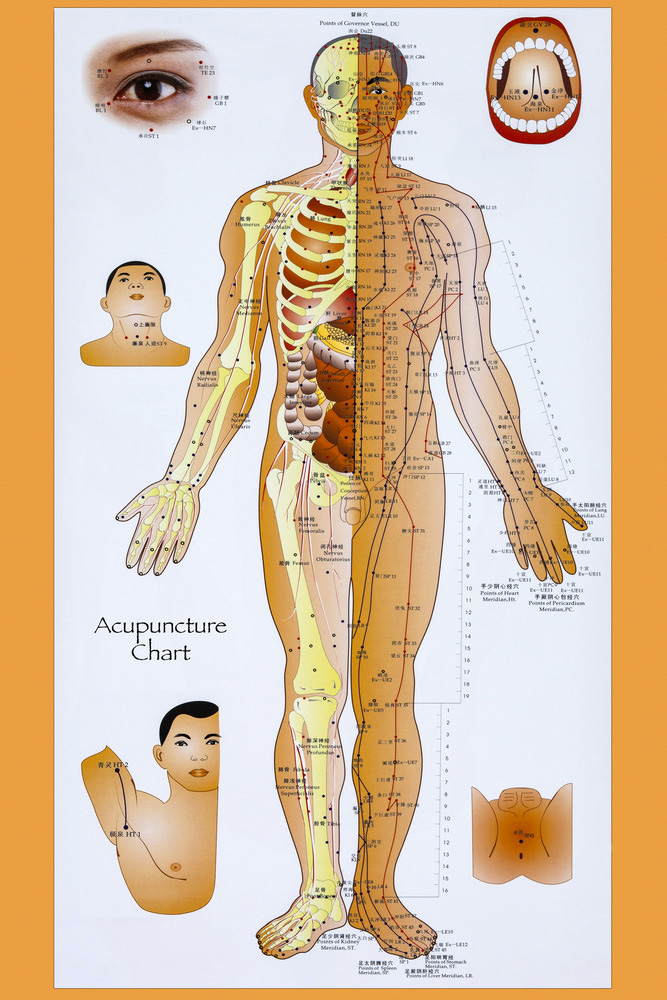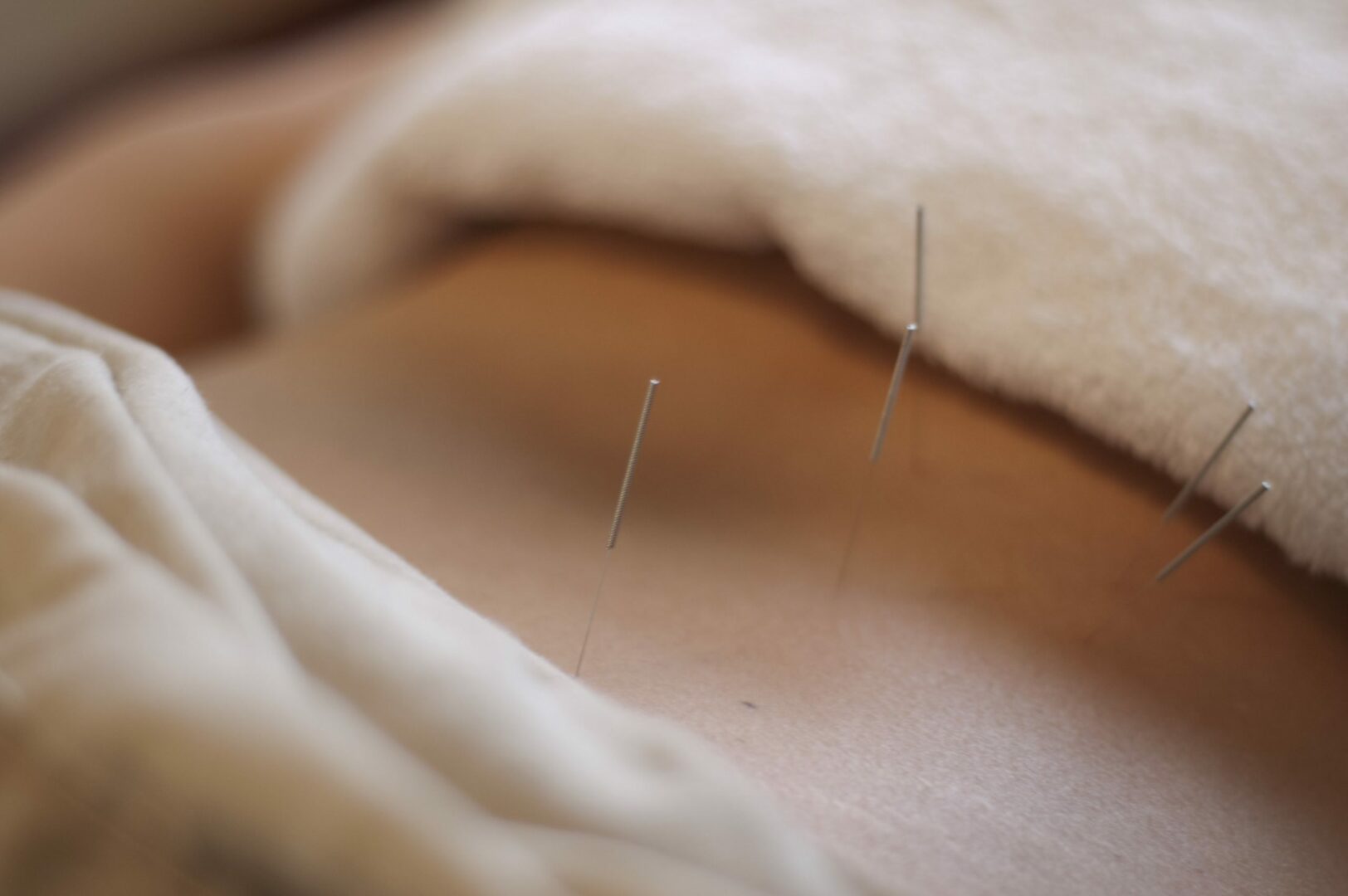Acupuncture has been practiced for thousands of years to enhance fertility. Modern research has shown that acupuncture boosts fertility and aids IVF by influencing the hormonal system and improving blood flow to reproductive organs.
In this blog post, we will dive into the research surrounding acupuncture as a treatment for infertility. We will discuss its potential mechanisms, highlight recent clinical studies, and examine the role acupuncture may play in IVF treatments.
Acupuncture in Infertility Treatment
Acupuncture traces its roots back over 2,000 years ago. Qi (pronounced as “chi”), is the vital energy that circulates through meridians in the body. Illness and disease results from blockages or imbalances in the circulation of Qi or a weakness in the Qi. Acupuncture seeks to restore health by addressing these issues.
The concepts of Yin and Yang are frequently used to describe and treat fertility issues. Yin is often associated with the follicular phase of the menstrual cycle, a period of growth and preparation for ovulation. It represents cooling, nourishing, and receptive aspects that are vital for the growth and maturation of the egg. Yang, on the other hand, is connected with the luteal phase, the period after ovulation. It embodies warmth, activity, and is crucial for implantation and of the developing embryo.
Imbalances may manifest as irregular or absent menstrual cycles, hormonal imbalances, or issues with egg quality – all potential contributors to infertility. By stimulating acupuncture specific points based upon your imbalance, the treatment aims to restore this balance, assisting the body’s natural capacity to conceive.
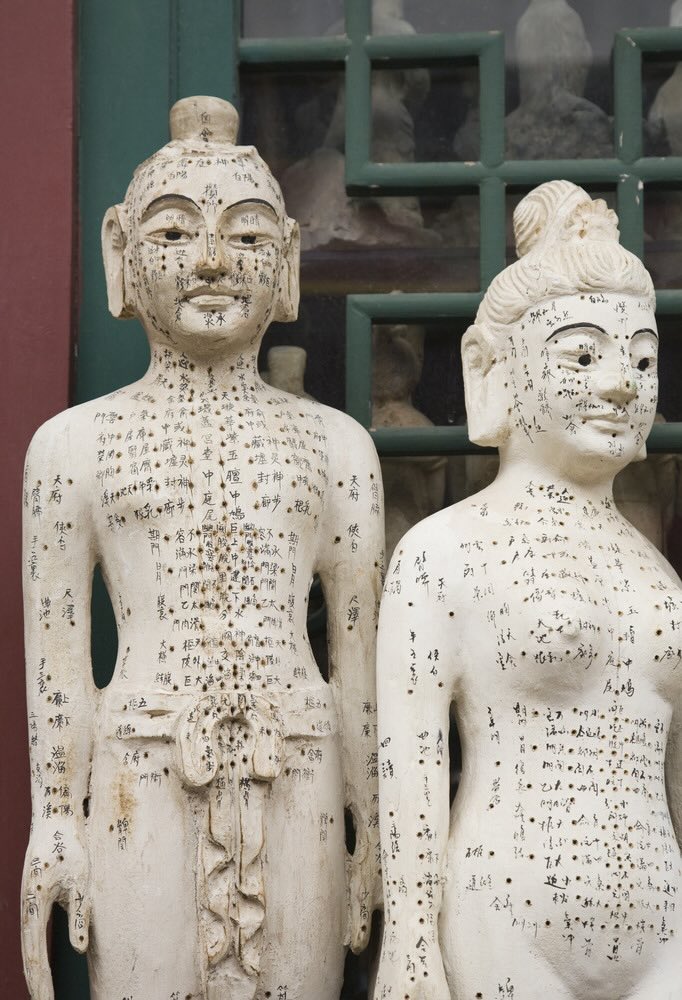
Latest Findings: Acupuncture’s Role in IVF Success
In a recent comprehensive analysis, researchers explored the impact of acupuncture on women undergoing IVF. This extensive review included 25 randomized controlled trials, encompassing a total of 4,757 participants. The findings are quite remarkable, the patients that received acupuncture showed a noticeable improvement across a range of outcomes: biochemical pregnancy, clinical pregnancy, ongoing pregnancy, and live birth rates. This reinforces the potential of acupuncture as a powerful complementary treatment of IVF. (1)
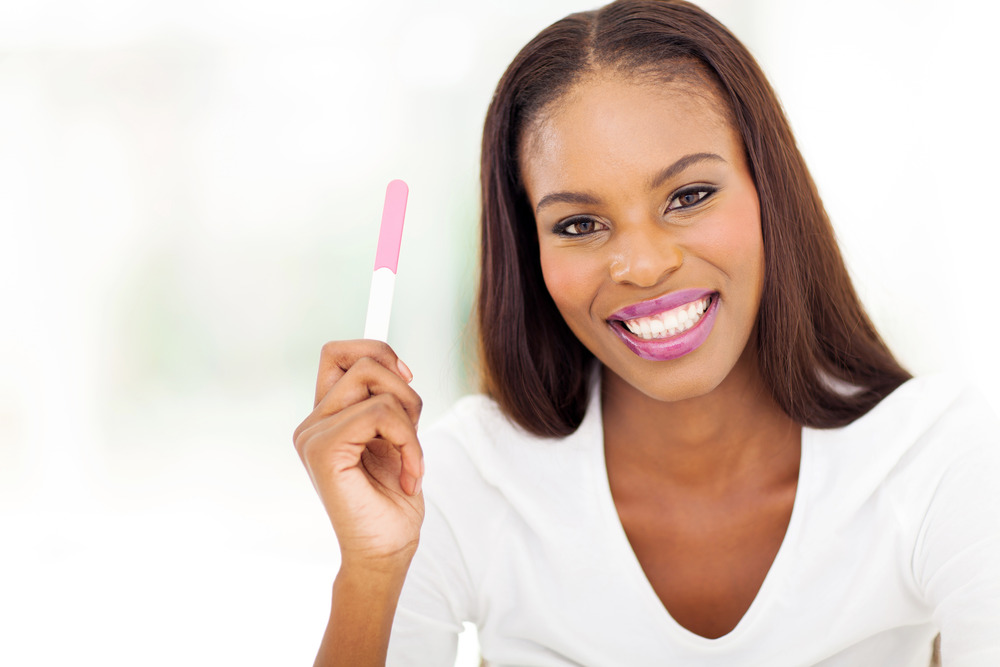
Many types of acupuncture were studied including manual acupuncture (MA), electroacupuncture (EA), and transcutaneous electrical acupoint stimulation (TEAS). Interestingly, the study found that all types of acupuncture were beneficial regardless of when it was performed during the IVF cycle. But it did find that having at least four acupuncture sessions increased the likelihood of successful pregnancy.
In the future, I would like to see more studies with a focus on personalized acupuncture methods, aligning with the principles of TCM, to potentially boost therapeutic outcomes.
Understanding How Acupuncture Aids Fertility
While acupuncture’s roots lie in traditional Chinese medicine’s philosophical principles of Qi, Yin, and Yang, its potential therapeutic effects are now being explored within the scientific framework. Reasons why acupuncture boosts fertility include-
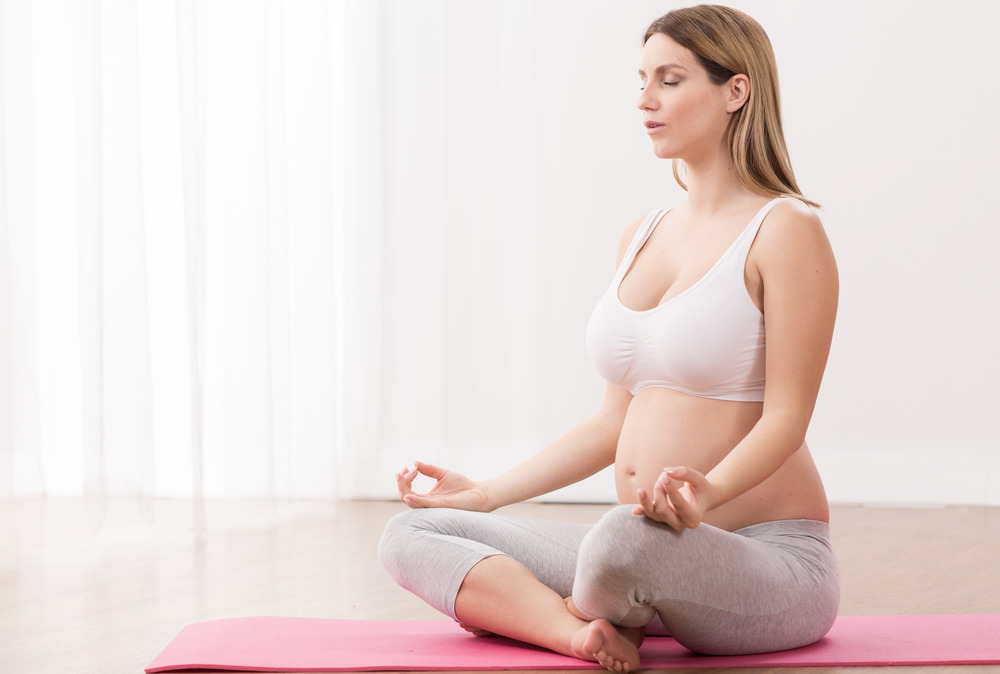
Influence on the Neuroendocrine System
Acupuncture is believed to impact the neuroendocrine system, which plays a crucial role in regulating fertility. Specifically, acupuncture may help to regulate sex hormones, including follicle-stimulating hormone (FSH), luteinizing hormone (LH), and progesterone, all of which are key players in a woman’s menstrual cycle and conception. These hormones influence the growth and release of eggs from the ovaries and prepare the uterus for a potential pregnancy. (2, 3,4)
In addition, acupuncture may help regulate the hypothalamic-pituitary-ovarian (HPO) axis, a critical component of the reproductive system. The HPO axis influences the production and release of these sex hormones and any imbalances can contribute to fertility issues.(5)
Improvement of Blood Flow to Reproductive Organs
Studies suggest that acupuncture might help increase blood flow to the reproductive organs, enhancing their function. This increased blood flow can improve the thickness of the endometrial lining, creating a more favorable environment for an embryo to implant and grow. (6)
Anti-inflammatory Effects in Fertility
Chronic inflammation in the body can negatively impact fertility. Acupuncture may help reduce inflammation and boost the immune system, creating a healthier overall environment for conception. (7)
Stress Reduction and Its Effects on Fertility
Stress is another factor known to negatively affect fertility. Acupuncture is inherently relaxing no matter what you are coming in for. This helps to provide an opportunity for the body to heal itself. (8)
Acupuncture Success Stories
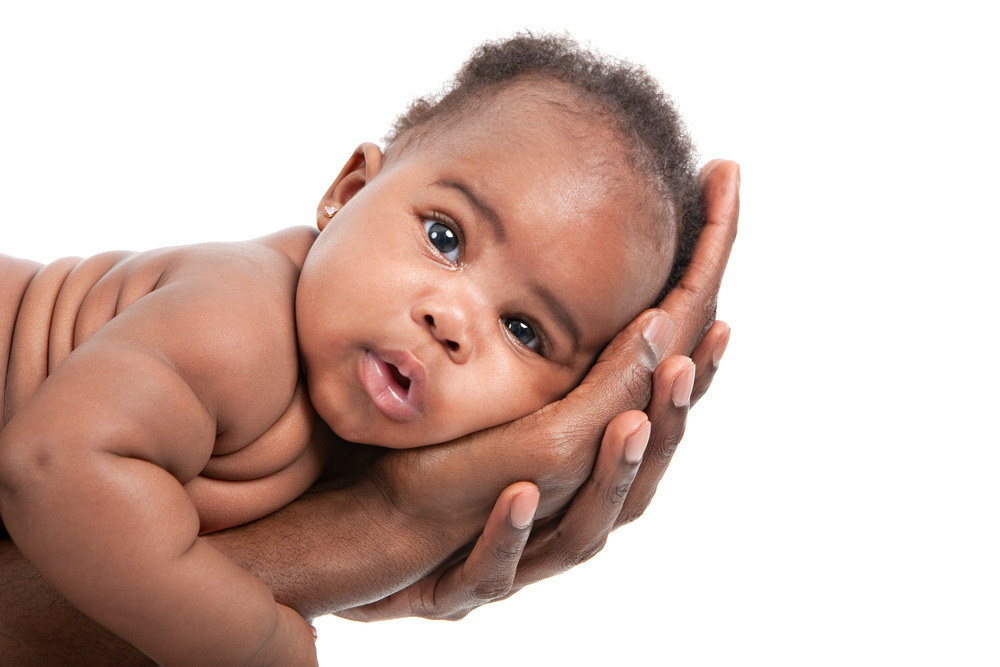
Mrs. V, is a 35-year-old woman, who came to my clinic with a history of secondary infertility. She and her husband had been trying to conceive their second child for over 14 months. Mrs. V medical history included late ovulation and shorter than average menstrual cycles. Prior to coming to the office she had previously had one cycle of IUI and IVF each, which had both unfortunately failed. Tests indicated a low ovarian reserve.
Mrs. V was planning for another round of IVF. I suggested giving the acupuncture a little time prior to the next round because I personally see a greater amount of success with 2-3 months of acupuncture prior to the IVF. We agreed to a two-month course of acupuncture treatment. The focus of the acupuncture was to regulate her hormonal imbalances as well as boost her Yang, Qi, and blood.
Mrs. V received acupuncture treatments once a week. After two months of acupuncture, Mrs. V began the second IVF cycle. We continued acupuncture through the cycle as well as on the day of the implantation.
The second IVF attempt was a success. Mrs. V conceived and went on to have a healthy pregnancy. Her successful pregnancy following the combined approach of acupuncture and IVF underscores the potential of acupuncture in complementing traditional fertility therapies.
Acupuncture and IVF: Key Takeaways
The recent research, incorporating thousands of participants, underscores acupuncture’s significant role in boosting key fertility outcomes. Whether it’s manual acupuncture, electroacupuncture, or transcutaneous electrical acupoint stimulation, the positive trends are evident. The findings that a minimum of four sessions can increase the likelihood of a successful pregnancy offers a tangible guideline for those considering acupuncture as a supplementary treatment. Not only does it help with boosting fertility rates but also it helps to manage stress and support the whole person throughout the process.
To make an appointment please call us at 212.319.5757
Or you can make Your Appointment Online.
- Xu, M., Zhu, M., & Zheng, C. (2023). Effects of acupuncture on pregnancy outcomes in women undergoing in vitro fertilization: an updated systematic review and meta-analysis. Archives of Gynecology and Obstetrics. https://doi.org/10.1007/s00404-023-07142-1
- Ko, J. H., & Kim, S. N. (2018). A Literature Review of Women’s Sex Hormone Changes by Acupuncture Treatment: Analysis of Human and Animal Studies. Evid Based Complement Alternat Med, 2018, 3752723. doi:10.1155/2018/3752723.
- Pan, W., Li, F. X., Wang, Q., Huang, Z. Q., Yan, Y. M., Zhao, L., & Shen, X. Y. (2022). A randomized sham-controlled trial of manual acupuncture for infertile women with polycystic ovary syndrome. Integr Med Res, 11(2), 100830. doi:10.1016/j.imr.2021.100830
- Wang, Y., Li, Y., Chen, R., Cui, X., Yu, J., & Liu, Z. (2014). Electroacupuncture for reproductive hormone levels in patients with diminished ovarian reserve: a prospective observational study. Acupuncture in medicine, 32(5), 377-381.
- Chang, R., Chung, P. H., & Rosenwaks, Z. (2002). Role of acupuncture in the treatment of female infertility. Fertil Steril, 78(6), 1149-1153. doi:10.1016/s0015-0282(02)04348-0
- Ng, E. H., So, W. S., Gao, J., Wong, Y. Y., & Ho, P. C. (2008). The role of acupuncture in the management of subfertility. Fertil Steril, 90(1), 1-13. doi:10.1016/j.fertnstert.2008.02.094
- Arranz, L., Guayerbas, N., Siboni, L., & De la Fuente, M. (2007). Effect of acupuncture treatment on the immune function impairment found in anxious women. Am J Chin Med, 35(1), 35-51. doi:10.1142/S0192415X07004606
- Eshkevari, L., Permaul, E., & Mulroney, S. E. (2013). Acupuncture blocks cold stress-induced increases in the hypothalamus-pituitary-adrenal axis in the rat. Journal of Endocrinology, 217(1), 95-104

